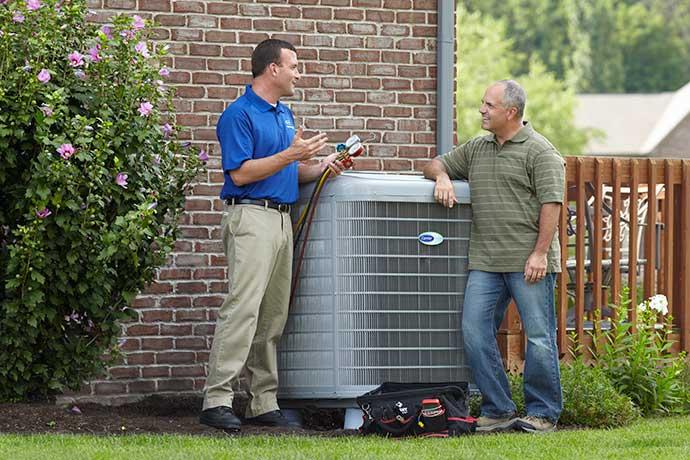A refrigerant leak in your air conditioner can be a serious issue, but whether you need to replace the entire unit depends on several factors, including the age of the unit, the severity of the leak, and the cost of repairs. It’s generally recommended to consult with us to assess the situation and determine the best course of action.
Factors to Consider
Age of the HVAC unit. If your air conditioner is relatively new (less than 10 years old), repairing the leak might be the more cost-effective option. However, if the unit is older (10-15 years or more), especially if it’s nearing the end of its expected lifespan, replacement could be a better long-term investment due to potential future issues and declining efficiency.
Severity of the Leak. A minor leak might be easily repaired with a simple stop leak product and recharge or a small component replacement. However, a major leak, especially one that indicates a failing compressor or other major components, might be more expensive to fix and could signal the need for replacement.
Cost of Repair vs. Replacement. Compare the cost of repairing the leak (including parts and labor) with the cost of a new, energy-efficient unit. Factor in the potential savings on energy bills with a newer, more efficient model, as well as the potential for future repairs on an older unit.
Environmental Concerns. Older AC units may use refrigerants like R-22 and R410A, which are being phased out due to environmental regulations. Newer units use more environmentally friendly refrigerants. If you’re concerned about the environmental impact, replacement with a newer, more sustainable unit might be a good option. Additionally, newer refrigerants help gain up to 16% more efficiency so that means lower utility bills for you!

